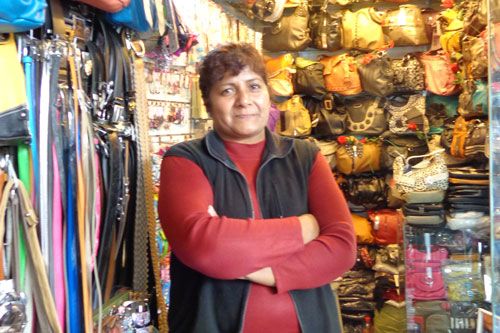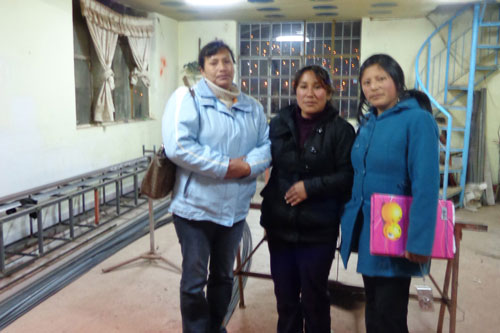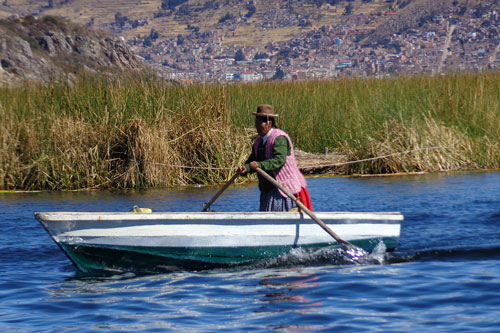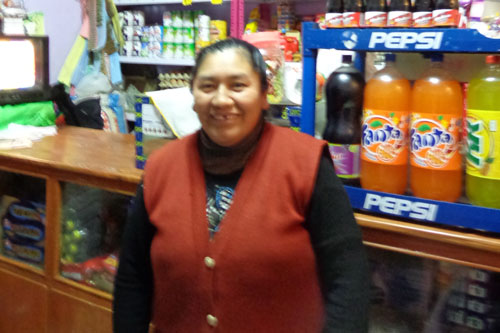Solidarity Groups for Rural Women Feed Families, Fight Poverty

Viviana* has worked hard all her life.
At 17, she left her home in Carhuanca – a rural village in southern Peru, six hours from Huamanga – and went to the city to find work. She needed to help her father and support her younger siblings by earning money to pay for their school fees, and she heard there were more opportunities to work and make a life there.
Soon Viviana met and married her husband, and at 21 she had a son, Miguel. But her husband’s job in the military took him away from home, and he sent back very little to support them, so she needed a way to care for herself and her son. She took in laundry and worked as a housekeeper, and later got a job selling clothes in the Santa Clara market in Ayacucho. She was earning income and even building up a small savings, but then the market was burned down by “Shining Path” insurgents – a common occurrence around Ayacucho during the height of the group’s anti-capitalist activities in the 1980s.
Having lost her main source of income, Viviana returned to taking in laundry and cleaning people’s homes. She began saving again, and was able to purchase a few animals to raise and sell in her local market for additional income. Before long, Viviana had ducks, chickens, rabbits and turkeys, but she still wasn’t earning enough to make ends meet, and her son, now 27, wanted to start studying accounting so he could get a well-paying job and plan for his future.
It was then that a friend of Viviana’s invited her to join a local solidarity group called “Niño Jesus de Leon Pampa,” which offers micro-finance loans and business training in cooperation with ECLOF Peru, Episcopal Relief & Development’s local partner.
“As part of the group I received 500 sols [about $180], which allowed me to increase the number of animals I had, and to feed them,” said Viviana.
With start-up funds to purchase more animals, improve their pens and buy more feed to help them grow, Viviana was able to pay back her loan and build up her savings again. The solidarity group offered financial literacy and business management workshops to help her reach her goals, and it also provided a caring community of women who encouraged each other.
“Thanks to that loan, God and ECLOF, I have a good quantity of animals and my income has increased, and my life is better.”
ECLOF International was founded in Geneva in 1946. Since then, it has expanded to work in 19 countries worldwide. Episcopal Relief & Development currently partners with the organization’s Geneva office and its local affiliates in Peru and Sri Lanka to support the establishment and growth of solidarity groups like Viviana’s.
“It is great to see our partnership with ECLOF Peru evolving,” said Kellie McDaniel, Program Officer for Episcopal Relief & Development, who oversees the organization’s micro-finance partnerships. “We are currently working with them on evaluating the impact of the micro-finance services on participants’ lives, because being able to show the success of the program helps promote the methodology in other communities.”
Through this partnership and others in more than 20 countries worldwide, Episcopal Relief & Development is strengthening communities by creating economic opportunities in rural areas, enabling people like Viviana to stay and raise thriving families in their hometowns. Investing in people and creating space for skill-building and mutual support is making a huge difference, one person at a time.
“I give thanks to ECLOF Peru for believing in me,” Viviana said.



*not pictured


